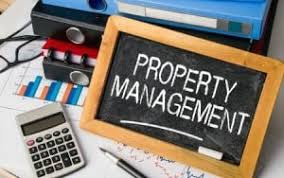Property managers who understand how to overcome challenges and create workarounds can be very successful while providing excellent management service.
Let's discuss how property managers can avoid common problems and create the right environment that will enhance your management capabilities and stimulate growth throughout your organization. I put together some tips and resources that should give you some ideas that can help you along the way.
- Prepare for unruly and difficult tenants: Get the facts about the tenants you choose to do business with, consider investing in a tenant screening software designed to help identify potential liabilities and assist you in making informed decisions.
- Maintenance funds for peace of mind: Nothing beats being prepared when using a maintenance fund. So what is it? A maintenance fund AKA Deferred maintenance fund is a system put in place to pool together money and hold it in a special account thats attended to cover the cost of unexpected repairs. This money can be obtained from tenants as part of or addition to their rent. The amount of money in this maintenance fund may vary depending on the frequency of repairs and other factors.
- Finding Reliable vendors is essential to your business: those who have a good reputation for providing quick and affordable repairs with industry knowledge. Working with vendors can be challenging, but having proper help is essential to an organization's success. Follow these tips to ensure that you are working with a company that is reputable and trustworthy:
- Get recommendations from other property managers
- Check online reviews.
- Ask about the company's experience and qualifications.
- Gather as many documents from the vendor as possible ex. License and insurance.
- Get everything in writing, including the terms of the agreement.
- By following these tips, you can increase your chances of finding a reliable vendor that will help you manage your rental properties effectively.
- For staying up-to-date on changing regulations: Property managers can subscribe to industry publications and attend continuing education courses to stay up-to-date on the latest changes, checking with the local building department. Also create a system for managing regulatory compliance within your business.
- Excellent customer service: This is perhaps the most obvious as well as an important factor for any business, but it's especially important for property management companies. communicating with your tenants and working with them to adhere to their concerns, will pay off. By using professional management skills your tenants will feel valued and respected, and will be more likely to renew their leases and recommend your company to others.
- Experience. Property managers: with experience in the industry have a better understanding of the ins and outs of property management. They're also more likely to have a network of contacts that can help them find tenants and resolve problems.
- Current technology: using good technology that's designed for the management industry can help you streamline their operational tasks and can save time and money. This could include implementing property management software that's designed for your industry, online tenant screening tools, or mobile apps for maintenance requests.
- Professional assistance: is key when it comes to succeeding in the property management business. Real estate agents can provide valuable expertise by focusing on specific areas and offering advice on the latest trends in the property market. They can conduct thorough research and analysis for various property types, including single-family homes, apartments, and commercial properties.
